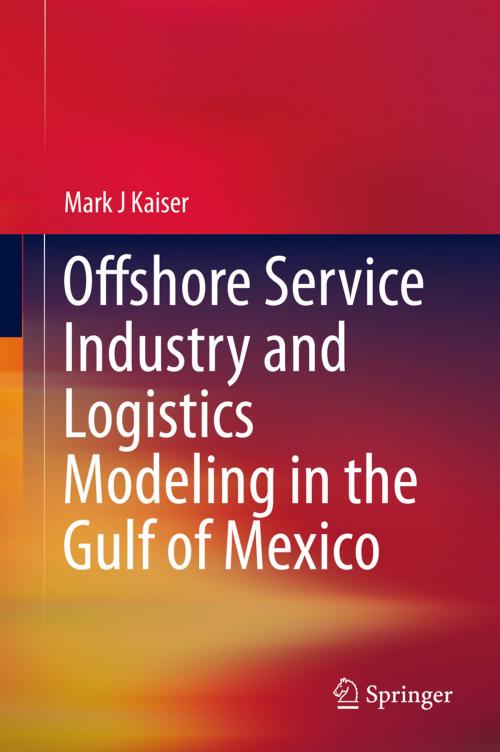Offshore Service Industry and Logistics Modeling in the Gulf of Mexico
Nonfiction, Science & Nature, Technology, Hydraulics, Science, Physics, Energy| Author: | Mark J Kaiser | ISBN: | 9783319170138 |
| Publisher: | Springer International Publishing | Publication: | July 9, 2015 |
| Imprint: | Springer | Language: | English |
| Author: | Mark J Kaiser |
| ISBN: | 9783319170138 |
| Publisher: | Springer International Publishing |
| Publication: | July 9, 2015 |
| Imprint: | Springer |
| Language: | English |
The purpose of this book is to examine the geospatial and temporal linkage between offshore supply vessels and oil and gas activity in the Outer Continental Shelf Gulf of Mexico, and to model OSV activity expected to result from future lease sales. Oil and gas operations occur throughout the world wherever commercial accumulations exist, but no quantitative assessment has ever been performed on the marine vessels that support offshore activity.
The OCS Gulf of Mexico is the largest and most prolific offshore oil and gas basin in the world, and a large number of marine vessels are engaged in operations in the region, but tracking their activity is difficult and requires specialized data sources and the development of empirical models. The challenge of modeling arises from the complexity and size of the system, and the particular limitations governing stochastic difficult-to-observe networks. This book bridges the gap with the latest technological perspective and provides insight and computational methods to inform and better understand the offshore sector.
Offshore Service Industry and Logistics Modeling in the Gulf of Mexico is presented in three parts. In Part 1, background information on the life cycle stages of offshore development and activity is reviewed, along with a description of the service vessels and port infrastructure in the region. In Part 2, OSV activity in the Gulf of Mexico is baselined using PortVision data to establish spatial and temporal characteristics of vessel activity. In Part 3, the analytic framework used to quantify the connection between OSVs, ports, and offshore activity is described, and activity expected to arise from the 2012-2017 OCS lease program is forecast.
Providing an invaluable resource for academics and researchers, this book is also intended for government regulators, energy and environmental analysts, industry professionals, and others interested in this often-overlooked sector.
The purpose of this book is to examine the geospatial and temporal linkage between offshore supply vessels and oil and gas activity in the Outer Continental Shelf Gulf of Mexico, and to model OSV activity expected to result from future lease sales. Oil and gas operations occur throughout the world wherever commercial accumulations exist, but no quantitative assessment has ever been performed on the marine vessels that support offshore activity.
The OCS Gulf of Mexico is the largest and most prolific offshore oil and gas basin in the world, and a large number of marine vessels are engaged in operations in the region, but tracking their activity is difficult and requires specialized data sources and the development of empirical models. The challenge of modeling arises from the complexity and size of the system, and the particular limitations governing stochastic difficult-to-observe networks. This book bridges the gap with the latest technological perspective and provides insight and computational methods to inform and better understand the offshore sector.
Offshore Service Industry and Logistics Modeling in the Gulf of Mexico is presented in three parts. In Part 1, background information on the life cycle stages of offshore development and activity is reviewed, along with a description of the service vessels and port infrastructure in the region. In Part 2, OSV activity in the Gulf of Mexico is baselined using PortVision data to establish spatial and temporal characteristics of vessel activity. In Part 3, the analytic framework used to quantify the connection between OSVs, ports, and offshore activity is described, and activity expected to arise from the 2012-2017 OCS lease program is forecast.
Providing an invaluable resource for academics and researchers, this book is also intended for government regulators, energy and environmental analysts, industry professionals, and others interested in this often-overlooked sector.















